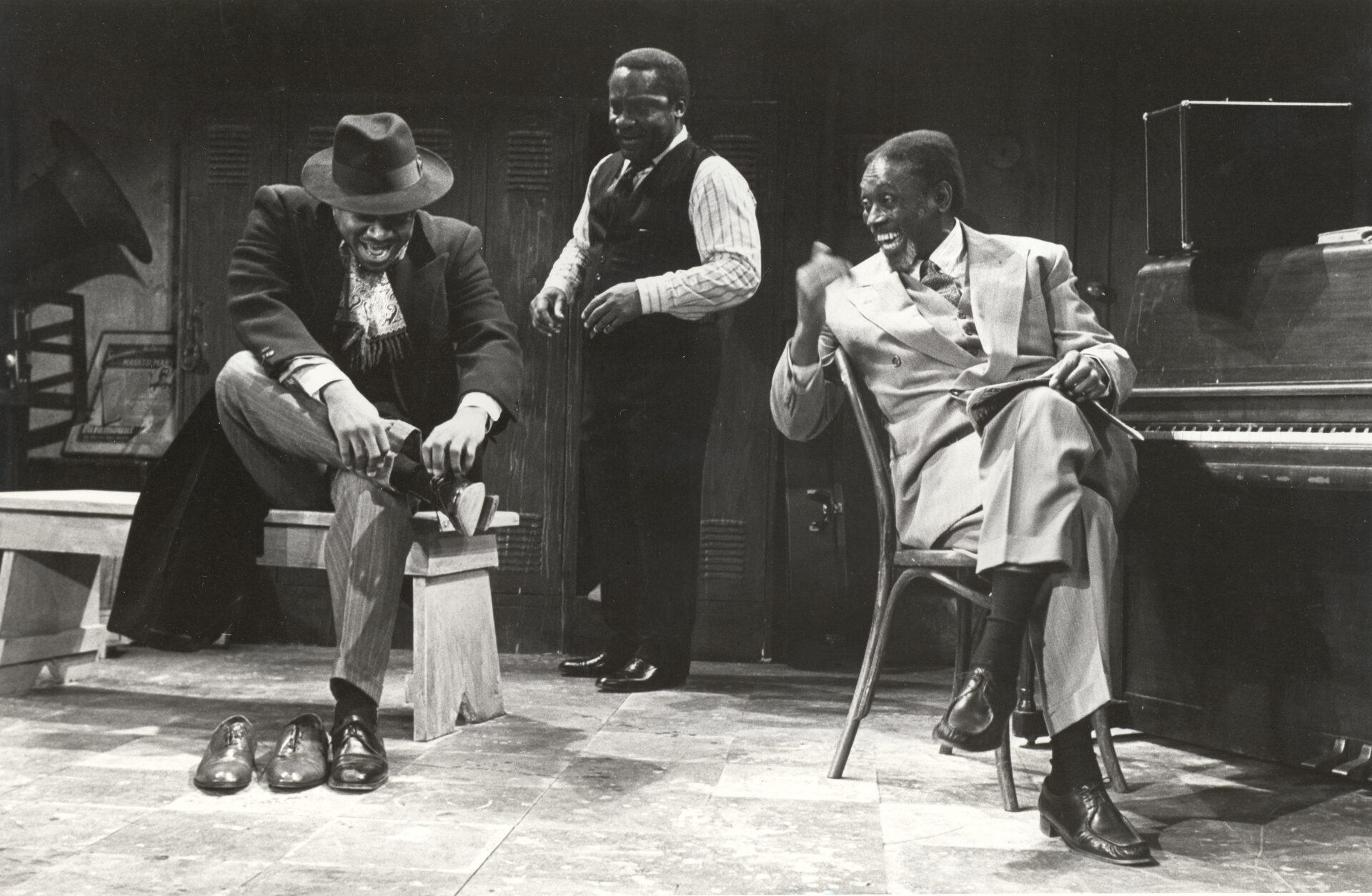10-Play Century Cycle
The first year denotes the year in which August Wilson wrote the play.
The second year denotes the year in which the play is set.
 Gem of the Ocean (2003/1904)
Gem of the Ocean (2003/1904)
Gem of the Ocean introduces Aunt Ester, who acts as a spiritual advisor and carries nearly 300 years of memories for the people of the Hill District. The play focuses on how she helps one man find himself within a turbulent history.
 Joe Turner’s Come and Gone (1988/1911)
Joe Turner’s Come and Gone (1988/1911)
In Joe Turner’s Come and Gone, Herald Loomis arrives in the Hill District after working on Joe Turner’s chain gang. Throughout his stay, Herald’s journey becomes a search for the meaning of his own past and the possibilities of his future.
 Ma Rainey’s Black Bottom (1984/1927)
Ma Rainey’s Black Bottom (1984/1927)
Set in Chicago, Ma Rainey’s Black Bottom is the only play in the cycle that does not take place in Pittsburgh’s Hill District. The play explores the many purposes of creative expression and the exploitation of African-American artists in the 20th century.
 The Piano Lesson (1990/1936)
The Piano Lesson (1990/1936)
The Piano Lesson focuses on the conflict between a sister and brother over whether to sell a piano that was acquired during slavery through the sale of two of the family’s ancestors. The play highlights the conflict between two ways of coping with a painful past.
 Seven Guitars (1995/1948)
Seven Guitars (1995/1948)
Set in 1948 in the Hill District, Seven Guitars tells the story of seven friends trying to make sense of a young blues musician’s untimely murder. They improvise a symphony that celebrates their lives together, riffing on their hopes, dreams, and struggles as African Americans.
 Fences (1987/1957)
Fences (1987/1957)
In Fences, Troy Maxson must reconcile his high aspirations with many disappointments and experiences of discrimination. The play explores Troy’s search for self-actualization and the mistakes he makes along the way.
 Two Trains Running (1991/1969)
Two Trains Running (1991/1969)
Set entirely in a restaurant, Two Trains Running focuses on several regular customers, each of whom has differing views on work, faith, and race relations. The play explores whether much has changed for African-Americans by the end of the 1960s.
 Jitney (1982/1977)
Jitney (1982/1977)
Set in an unofficial taxi station threatened with demolition, Jitney explores the lives and relationships of the station’s various drivers. The conflicts between generations highlight differing conceptions of legacy and identity.
 King Hedley II (1999/1985)
King Hedley II (1999/1985)
King Hedley II tells the story of an ex-convict trying to rebuild his life. The play explores the challenges of creating a stable family and sense of self in a community plagued with violence and prejudice.
 Radio Golf (2005/1997)
Radio Golf (2005/1997)
Wilson’s final play, Radio Golf, revolves around Harmond Wilks and his ambitious plan to redevelop the Hill District. He and his partner clash over whether to proceed with the project and deny the past in the name of development, or to preserve the Hill’s history.
How I Learned What I Learned (2003)
In his one-man show How I Learned What I Learned, Wilson shares personal stories about racism, music, love, violence, and friendship as a young poet in Pittsburgh’s Hill District. The show is a journey of self-discovery and what it means to be a black artist in America.
